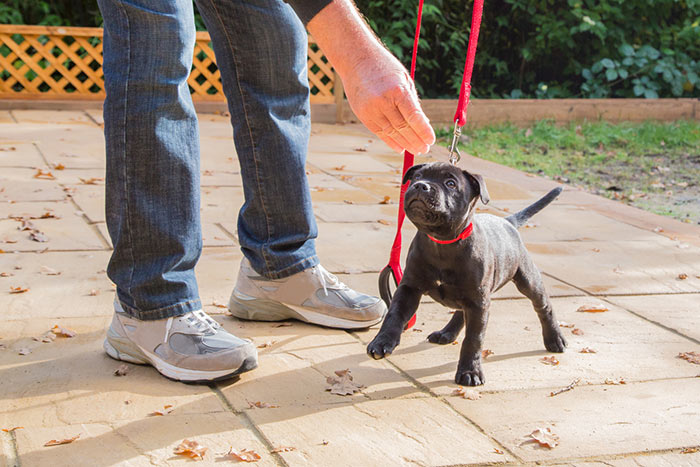Teaching name recognition and recall to puppies is a vital part of their early education. It helps establish a bond between owner and puppy, encourages better behaviour, and sets the pup up for a lifetime of successful obedience training. By teaching your puppy to recognise and respond to its name, your four-legged friend will be equipped with the tools needed to be an obedient, well-behaved member of society. Name recognition and recall can also help in emergency situations where quick responses are needed. With proper instruction and a little patience, your pup will learn their name quickly and easily – read on to find out more.
Tips for Teaching Name Recognition
One of the most important aspects of recall is ensuring that your dog recognises its name. This is one of the most basic things to teach your puppy. It can be a fun and rewarding process, but it does take commitment and consistency.
When naming your new furry friend, choose a name that is easy to pronounce, and distinct from other common words or commands you may use. While it may seem cute to name your pet a similar name to a child or other family member, this can be confusing for your new puppy.
Training should begin in a quiet space free from distractions as this will help your puppy focus on you and their name. Toys, other animals, or loud noises can distract your pup and make training a whole lot harder.
Call your puppy’s name and, when they look up at you, praise them lovingly and offer a treat. Then let them wander off. Repeat this several times until they start getting the hang of it.
If your puppy doesn’t listen, wait patiently until they look at you and when they do, praise them, and offer a treat. Eventually, you should start to remove the treats, and once they have mastered that, add in some distractions, and change up the location. It’s important that your pooch can respond to their name in a wide range of settings.
Things to Remember:
- Always associate your puppy’s name with positive experiences. You can do this by consistently saying their name in a cheerful and upbeat tone and by using treats, praise, and loving pats.
- Use their name consistently throughout the day, especially during interactions, playtime, and training sessions. Make sure to say their name before giving a command or calling them to you.
- When your puppy responds to their name, provide immediate praise, pats, or treats.
- Avoid punishment – avoid using your pup’s name in a negative or punishing context. The key is for them to associate their name with positive experiences and to willingly respond to it.
Teaching Recall
Once your puppy knows their name and responds consistently to it, the next step is to train them to come to you. Choose a short, sharp word that will act as a cue for your dog to return. Some of the most popular choices are ‘Come’ or ‘Here’. You could also use a loud whistle if you prefer a sound over a word.
Teaching recall is similar to teaching name recognition. Start in a quiet space, arm yourself with your pup’s favourite treats, and be patient. Get their attention with their name and then use your cue and take a step away, holding out their treat. As they return, reward them with the treat. Repeat this process, gradually stepping further and further away from them.
You can also use a long leash or rope to help teach your pup recall. This is great for training in parks or in other locations where there may be distractions. Let your dog wander away from you and then, when you use your cue, gently tug on the leash to get them to return to you. Once they do, shower them with praise and offer a tasty treat.
Helpful Hints:
- Offer irresistible treats such as cut up sausage, liver treats, or something else your dog normally devours. It’s essential that they have a positive association with returning and that they understand returning is worth their while.
- A recall should always be associated with positivity, never negativity or punishment. Even if you are frustrated or your pup just isn’t listening, be patient, be consistent and remain positive. Continue to shower your pup with love and ignore disobedient behaviour.
- If you’re somewhere fun, like a dog park, call your dog back often, even if you’re not planning to leave. Otherwise they may come to associate recall with social withdrawal and leaving the fun place.
It’s important that you are patient and consistent with training. Puppies require time, repetition, and consistency to learn so don’t give up after a few days if you think it’s not working! Puppies learn at their own pace, and each breed is different. Putting in the hard yards when they are young will ensure you are rewarded with a well-behaved pooch you can take anywhere.
Need Expert Advice on Puppy Training? Your Local Byford Vet Clinic Can Help
As the local vet Kelmscott relies on for professional pet care, the passionate team at Railway Avenue Veterinary Hospital ensures your pet always receive the best possible pet care, grooming, boarding and vet services. Book an appointment online now or call 08 9497 1547 today.


